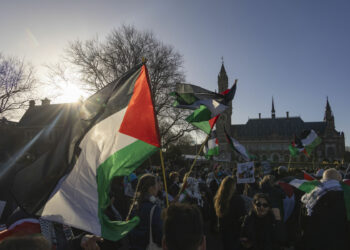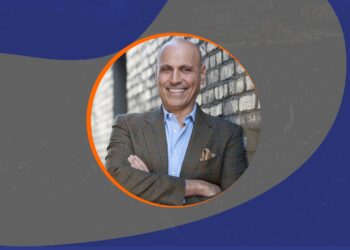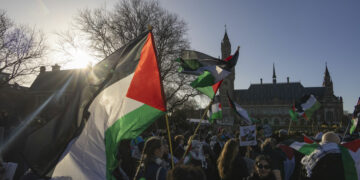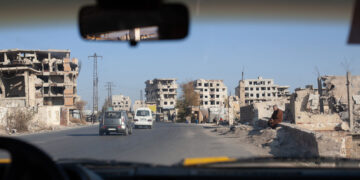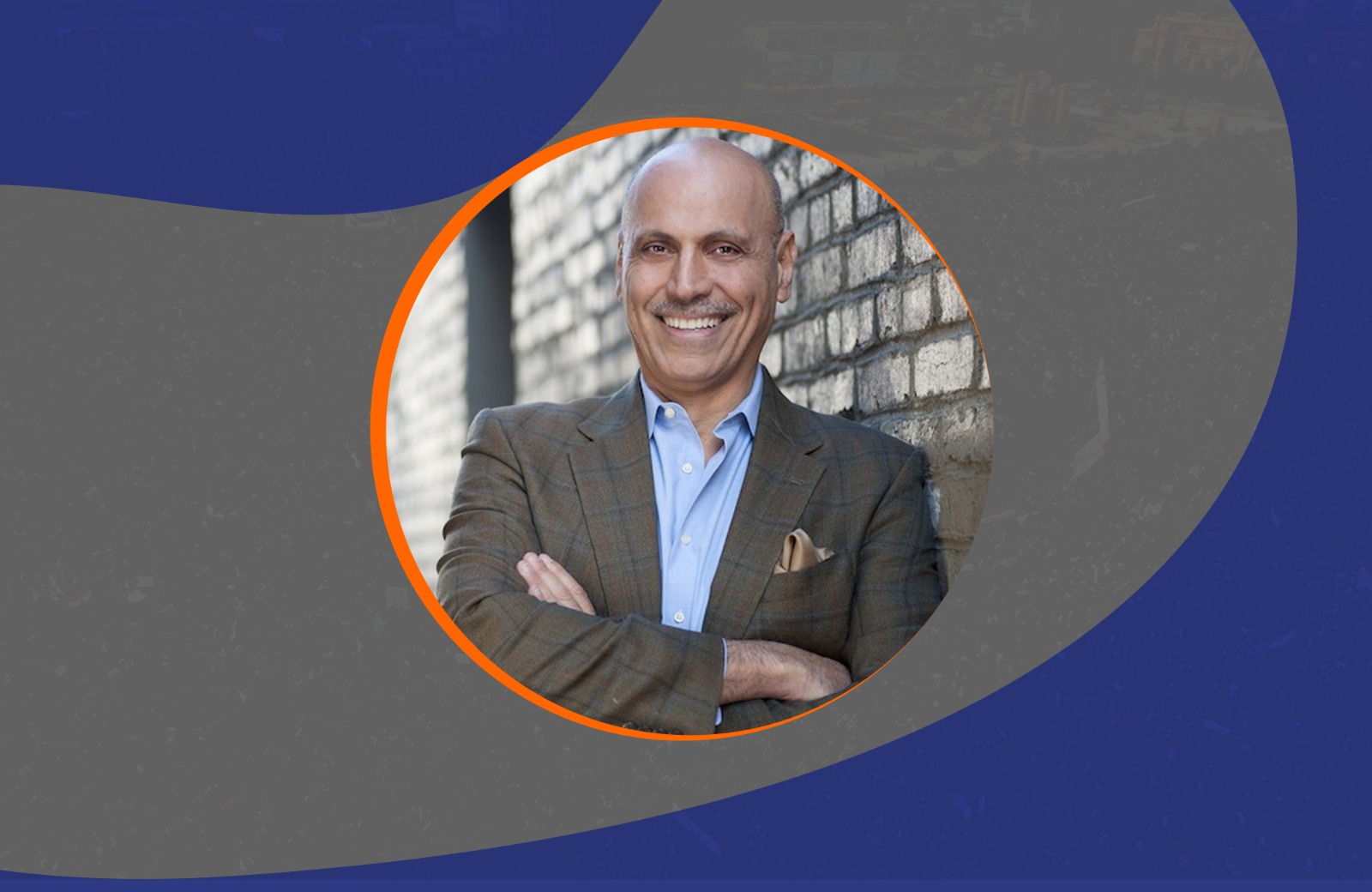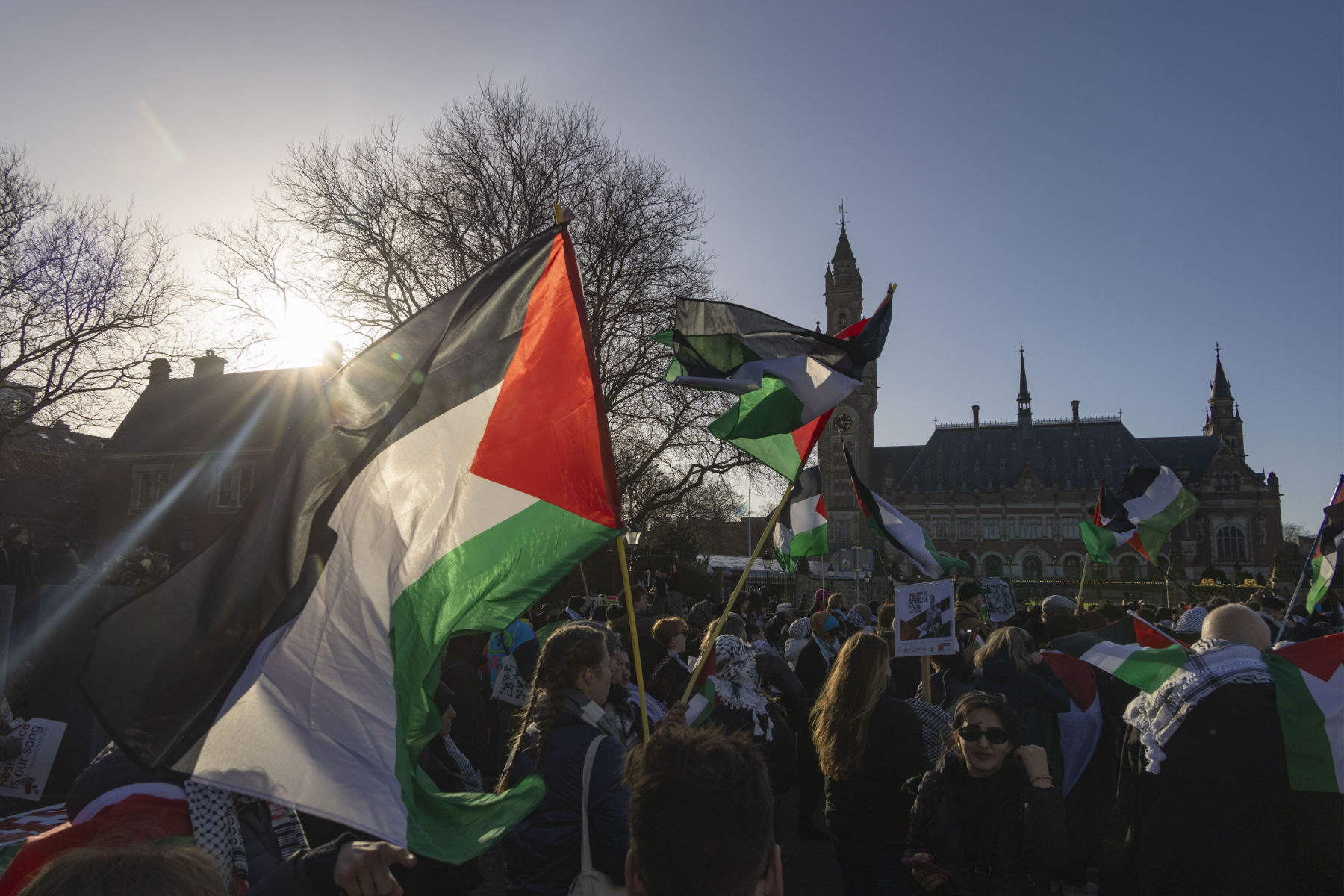Sarah Leah Whitson is the Executive Director of DAWN.
عربي
Eleven years ago, a global spotlight shined on Egypt. All around the world, we celebrated and cheered on the country's men, women and children, who stood up for the values we all cherish, and who took bullets and sacrificed their lives for freedom, for economic and political justice, for democracy. We honor them as heroes this week, especially those who were murdered by Egyptian security forces on the streets of Cairo, Giza, Alexandria, Suez and other cities in 2011, as we honor the more than 1,000 additional protesters who were murdered in Rabaa and Nadha squares when they resisted the coup that sadly followed in 2013.
It's worth reminding young activists around the world that the vast majority of protesters out on the frontlines of Egypt's streets were young people like themselves, many mere high school students, who believed they could shape the future of their country. How many of us today would have their bravery? Their successful, peaceful overthrow of a 30-year-long dictatorship stands as a tremendous, historic achievement.
It's particularly important that we commemorate the Egyptian revolution and memorialize the sacrifices of the Egyptian people because the current Egyptian military government, under President Abdel Fattah al-Sisi, is actively trying to erase this history, to disappear it from history books and school curriculum, even though the constitution still celebrates the revolution and its call for bread, freedom and social justice. Revealingly, although the U.S. State Department went out of its way to commemorate the Tiananmen Square massacre last year, in the face of the Chinese government's efforts to disappear evidence and even mention of its crime, it has uttered not a word to mark the massacres of Egyptian protesters.
It's worth reminding young activists around the world that the vast majority of protesters out on the frontlines of Egypt's streets were young people like themselves, who believed they could shape the future of their country.
- Sarah Leah Whitson
The bitter reality for Egyptians is that the democratic aspirations of the Egyptian people are now on pause, having been quashed by Sisi's dictatorship, which enjoys the backing of the United States, Saudi Arabia and the United Arab Emirates. Tens of thousands have been wasting away in Egyptian prisons for over a decade now, and as this week's horrific leaked video of Egyptian police torturing men in a Cairo police station reminds us, torture and abuse in Egypt are systematic and widespread.
One of those unjustly detained young men is Gehad al-Haddad, whom I met in the brief window of Mohamed Morsi's government in 2012. In his mid-20s at the time, Gehad served as a spokesman for the government, and we had a spirited, informed debate about international human rights laws on free speech, as we urged the Morsi government to revise the restrictions on speech in Egypt's penal code. How painful it is to think that this intelligent, vibrant young man remains imprisoned, tortured, held in solitary confinement, and now unable to walk, stuck on a Kafkaesque carousel of new, baseless charges every time prior ones are dismissed, after nearly a decade. So many of Egypt's best and brightest—whose only crime was believing in democracy, believing they could be part of a process for change, believing they had a right to participate freely in politics—are suffering like him.
The sad reality for Americans is that there's really no difference between Democratic and Republican administrations when it comes to supporting, arming and enabling tyrannies in the Middle East, including Egypt prominently among them, though the Democrats do wax poetic about democracy and human rights. It's hard to imagine that the State Department is apparently considering lifting even the tiny amount of military aid it restricted to Egypt last year—$130 million of $1.3 billion in weapons—despite the overwhelming evidence of the Sisi government's addiction to terrorizing its own citizens. And what a slap in the face to Egyptians that the State Department chose Jan. 25 to announce its approval of $2.2 billion in military aircraft sales to Egypt's government.
Despite everything, the good news is that the Arab people—wave after wave, year after year, country to country—are unstoppable in their quest for change.
- Sarah Leah Whitson
Despite everything, the good news is that the Arab people—wave after wave, year after year, country to country—are unstoppable in their quest for change. In the more recent uprisings in Sudan, Iraq, Algeria and now, emerging again in Tunisia, they remind us each time when we think that the brutes have won, it's all over and the people have given up, that the struggle persists. And again and again, the Arab people on the streets are the ones leading the way. It's quite astounding, really, from a sociological and historical perspective, to see this resilience, this persistence, this steadfastness; against the odds, people keep fighting back.
The challenge is great and clear: The authoritarian, abusive governments of the Middle East are better allied and more united than ever, and as confident about their political and military support from the West as ever before. On the other side, our weakness is clear: There is still no transnational movement for democracy in the Arab world, much less globally. These are our greatest Achilles' heels. Without joining forces, the people of each country will remain outpowered and outnumbered. The enormous task ahead is for such a movement to develop, like the non-aligned and anti-colonial movements of the 1960s.
Those in the West, particularly the United States, have our own work cut out for us. We have more freedom and more power because our governments are still mostly democracies. We have a legal and ethical duty to do what we can to end our own complicity in the tyranny of the region. Washington has become entirely beholden and corrupted by foreign governments and defense industry lobbyists, but Americans have failed to hold our elected officials accountable. There's much that can be done to stop this corruption, including banning lobbyists for abusive governments from meeting with our elected officials, and banning our government officials from working for defense companies and foreign governments when they leave office. Our existing laws don't even serve as a slap on the wrist to curb the rotting impact of money in our political system.
The foreign policy advocacy communities need to do a better job explaining that President Joe Biden's so-called "democracy initiative" will fail, and that the administration's self-declared global priority to fight authoritarianism, especially in China and Russia, will fail too, so long as the U.S. supports abusive, apartheid governments in the Middle East. The very nature of the venture to save democracy around the world depends on the credibility of the values we espouse. The fact is, the Biden administration has already done as much to undermine these values as the Trump administration before it. We must persuade the American people that these policies endanger American interests, and them, here at home, not just harm the people "over there." Let the memory of the Egyptian struggle for freedom and democracy light the way for all of us.


















